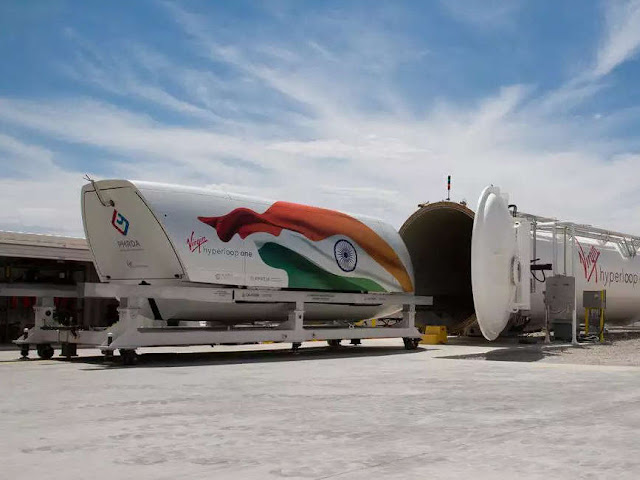- Indian billionaire
Mukesh Ambani has upped the stakes with an investment of $25.76 million inskyTran , acquiring a majority stake. - skyTran, not unlike
Elon Musk ’sHyperloop , used the power of magnets to offer a carbon emissions-free of travelling faster within urban cities. - Hyperloop already has three projects going in India — Mumbai to Pune, Bengaluru Airport connectivity, and Delhi to Chandigarh.
A clash of the tycoons is unfurling in India between Asia's most extravagant man, Mukesh Ambani and originator of SpaceX and Tesla, Elon Musk.
Ambani's Reliance Industries has procured a US-based transportation organization creating unit taxis, that the combination at first put resources into three years prior, through its auxiliary Reliance Strategic Business Ventures.
Both skyTran and Musk's Hyperloop are occupied with making case taxis. Likewise called individual quick travel (PRT), these are a sort of little open vehicle office that highlight little mechanized vehicles that work inside an organization of uncommonly constructed tracks.
Hyperloop and skyTran taxis utilize the force of magnets to move around at speeds that can hypothetically reach upto 240 kilometers each hour.
Hyperloop, as of now, has three ventures in progress inside India. One associating Mumbai to Pune, another expanding the network to the Bangalore International Airport and the furthest down the line try to interface Chandigarh to India's capital city, New Delhi.
 |
skyTran has created advancement latent attractive levitation and drive innovation for actualizing individual transportation frameworks pointed toward taking care of the issue of gridlock universally," said Reliance in its administrative documenting.
This comes surprisingly close to Ambani reporting that he will make batteries for electric vehicles in front of the blast resounding with Musk's arrangements with Tesla. While Tesla makes its lionshare of income from the real vehicles, Musk has put resources into energy age and capacity amazingly.
Musk had before uncovered that his organization may set up a Gigafactory inside India once it begins fabricating electrical vehicles in India. Its office is now set up in Bangalore with plans for an assembling plant soon to follow, as indicated by reports.
skyTran versus Hyperloop
The plan to present unit taxis in India was driven by Minister for Road Transport and Highways, Nitin Gadkari, in 2016.
After a year, in 2017, a board headed by Indian government's approach think tank NITI Aayog cleared the service's proposition to test three quick vehicle frameworks utilizing unit taxis. The short-recorded competitors were New Zealand's Metrino Personal Rapid Transit, UK's Ultra Global PRT and US-based skyTran.
Ultra Global uses elastic tires that sudden spike in demand for exceptionally made tracks and Metrino's cases are suspended from overhead rails. Of the three, skyTran is the one in particular that utilizes attractive levitation to move case taxis from one highlight another, making it the solitary contender to Hyperloop's expectations in India.
Instead of composing up with the focal government, Hyperloop decided to chip away at projects with state governments. It has been working with the Maharashtra government to assemble the world's first business Hyperloop passage running among Pune and Mumbai. The Musk-possessed undertaking is additionally chipping away at expanding availability to the Bangalore Airport.
In November a year ago, Hyperloop had a significant achievement. It effectively brought two people through a cylinder in one of its attractively suspended cases at 160 kilometers each hour.
Both of these organizations may utilize attractively suspending taxicabs to wager on the future however there is a vital contrast in the use of their particular innovation.
Hyperloop is incredible for voyaging longer distances, more between urban communities than inside the actual city. skyTran, then again, is centered around intra-city transport.
Dependence began by obtaining 12.7% of skyTran in October 2018. One year from now, in November 2019, ir raised its stake to 17.37%,. By April 2020, Reliance put in a third tranche of speculation to bring its stake up to 26.3%.






0 Comments